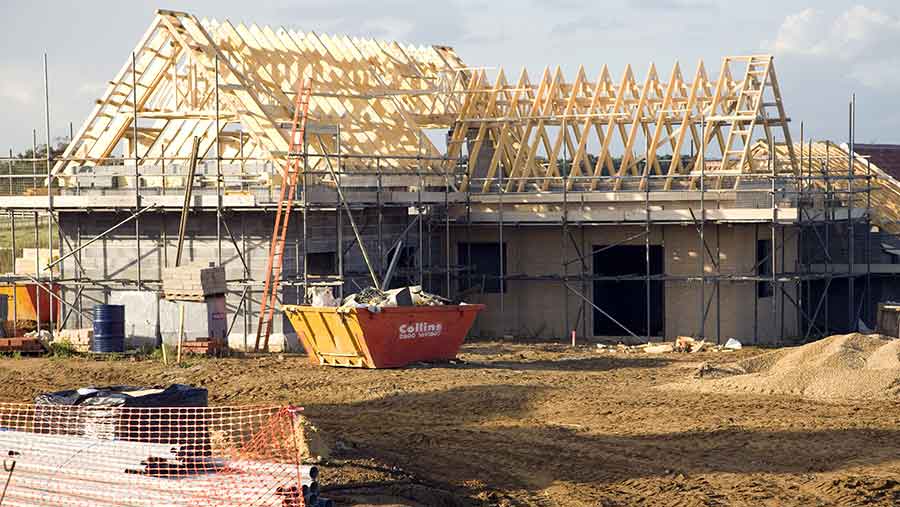Tax and legal changes needed to encourage affordable homes
 © General Images / UIG/Rex/Shutterstock
© General Images / UIG/Rex/Shutterstock Changes to the tax and planning system are needed to encourage more landowners to release land in rural areas for affordable housing, according to countryside campaigners.
The Campaign to Protect Rural England (CPRE) says landowners could play a crucial role in solving England’s housing crisis, but obstacles need to be removed to enable it to happen.
In a report, On Solid Ground, CPRE proposes that landowners should be given the power to ensure that their land will benefit people with local connections.
See also: Farmers can be part of affordable rural housing solution
At the moment, most local authorities use a system of choice-based lettings for affordable housing.
This is essentially a bidding system for people on the statutory housing waiting list, in which social housing is advertised to eligible people near the top of the list and individuals then “bid” for a property.
Local connections
This system means that rural affordable housing can be allocated to individuals, even if they have no family or employment connections to the area.
However, rural landowners and the local community are often keen to ensure that prospective tenants grew up in the area or work for a local employer.
The fact that they have little control over who will eventually live in the houses is seen as a disincentive for landowners to put land for affordable homes, known as rural exception sites, forward and also a key reason why local residents may object to an application for planning permission.
“Ensuring that new housing units are reserved for those with strong bonds to the local community is crucial to securing investment,” says the report.
“Were government to allow nomination rights on rural exception sites to rest solely with the landowner…they would be reassured that their investment would benefit local residents.”
Tax barriers
The document also recommends the removal of tax barriers that discourage landowners from providing affordable housing.
Currently, if a rural landowner lets properties, any excess of expenditure over income earned is ineligible for income tax relief in the year the loss is incurred.
“Legislation could be amended so that this loss can be offset against other taxable income,” says the report.
“Providing income tax relief for any excess of expenditure over income earned on properties let at below market rent in rural areas would better incentivise rural landowners.”
Allowing landowners to benefit from Capital Gains Tax (CGT) rollover provisions on rural exception sites could also increase the amount of affordable housing, it adds.
Trinley Walker, CPRE policy and research adviser, said: “There is a clear appetite among landowners to help create affordable housing for local people, but the current system discourages them from doing so.
“Removing some of the obstacles preventing landowners from providing land is a straightforward way to get more houses built for those who need them.”
Landowner support
Ross Murray, president of the Country Land and Business Association (CLA), offered his backing to the report.
“We want life in our villages – to support young families, local workers and those in the community who are ready to downsize,” he said.
“At a time when housing costs are spiralling, providing more affordable housing is an excellent way to sustain rural communities for future generations and ensure people have the opportunity to live and work in the countryside.”
